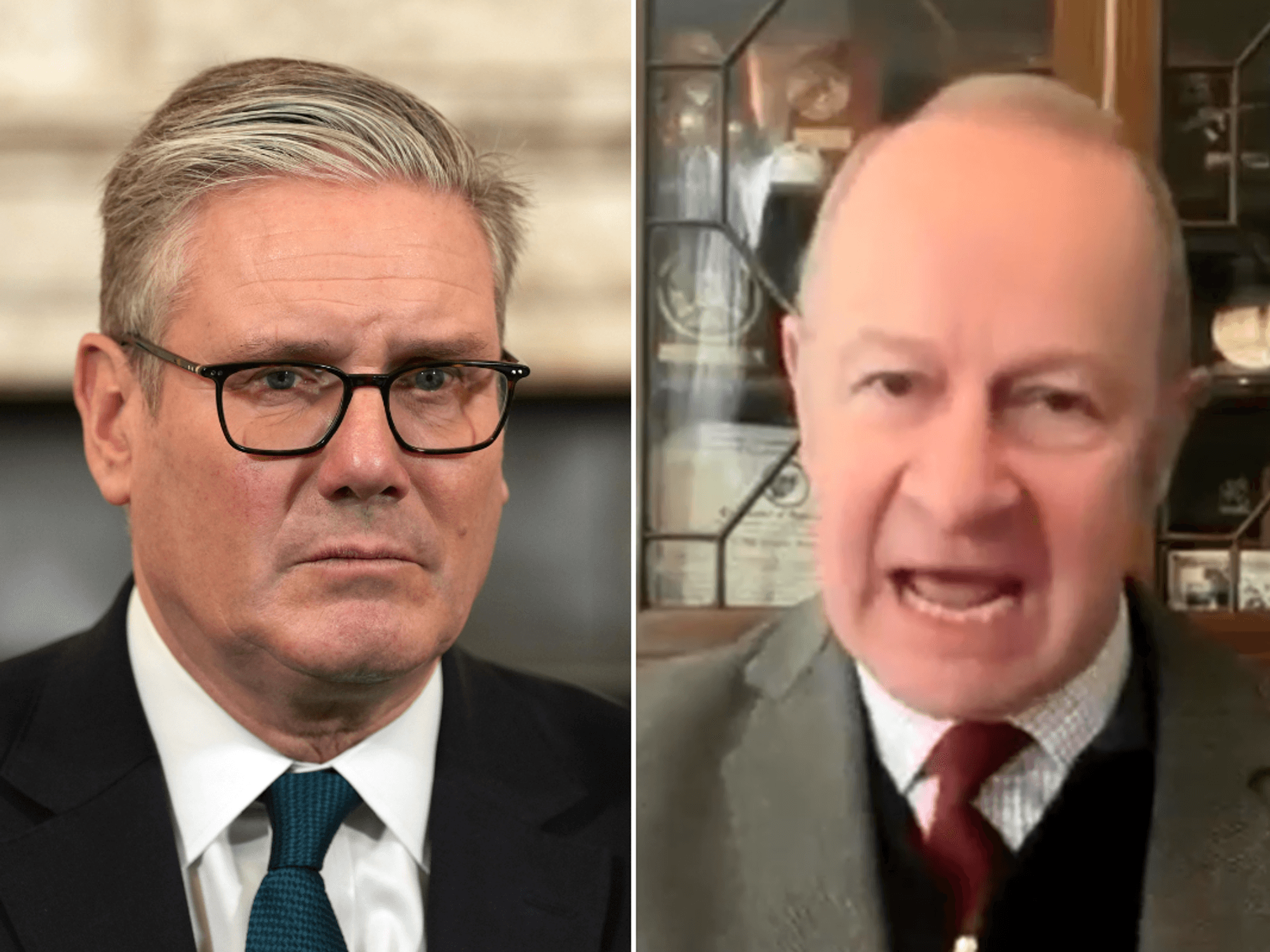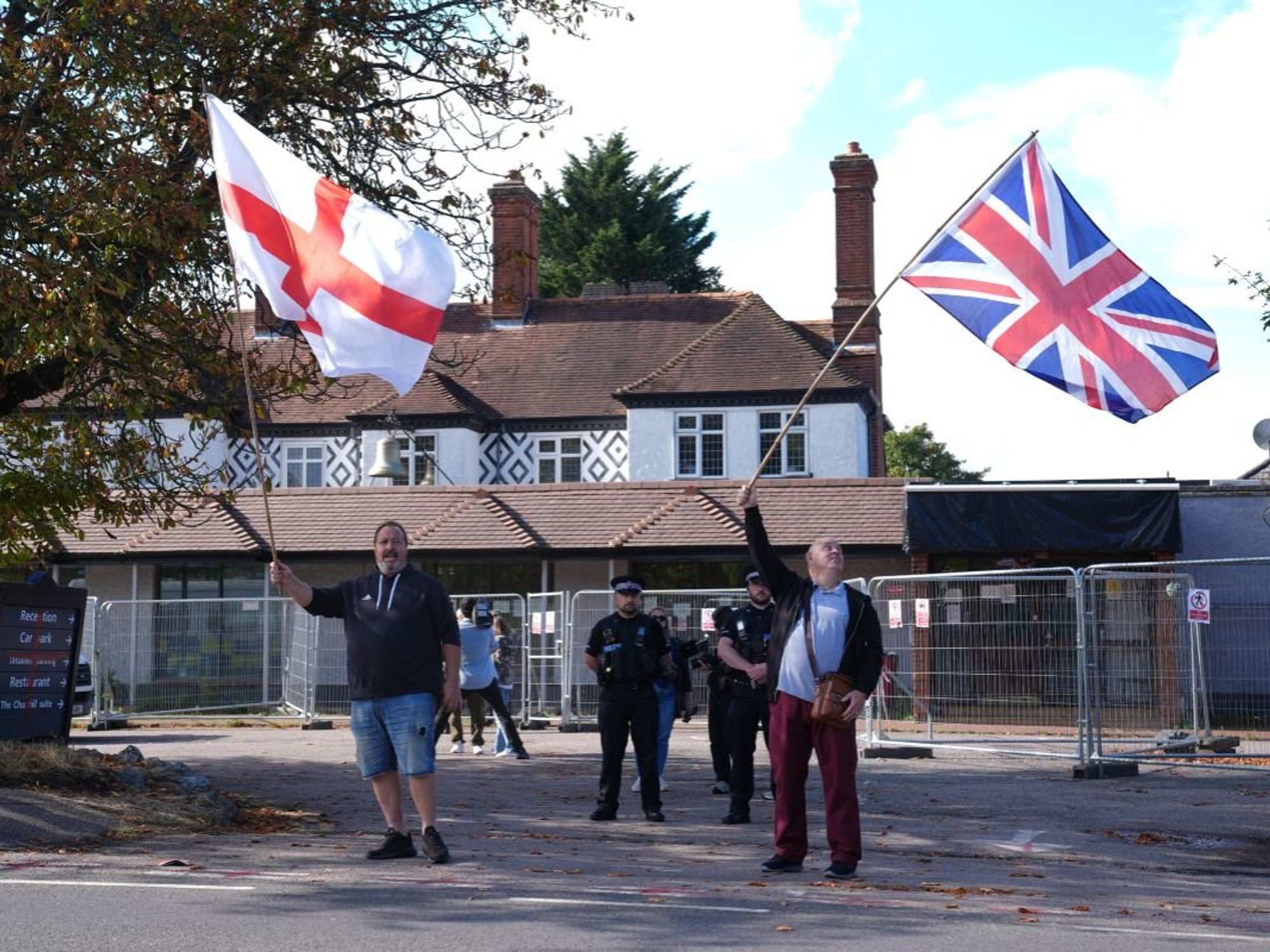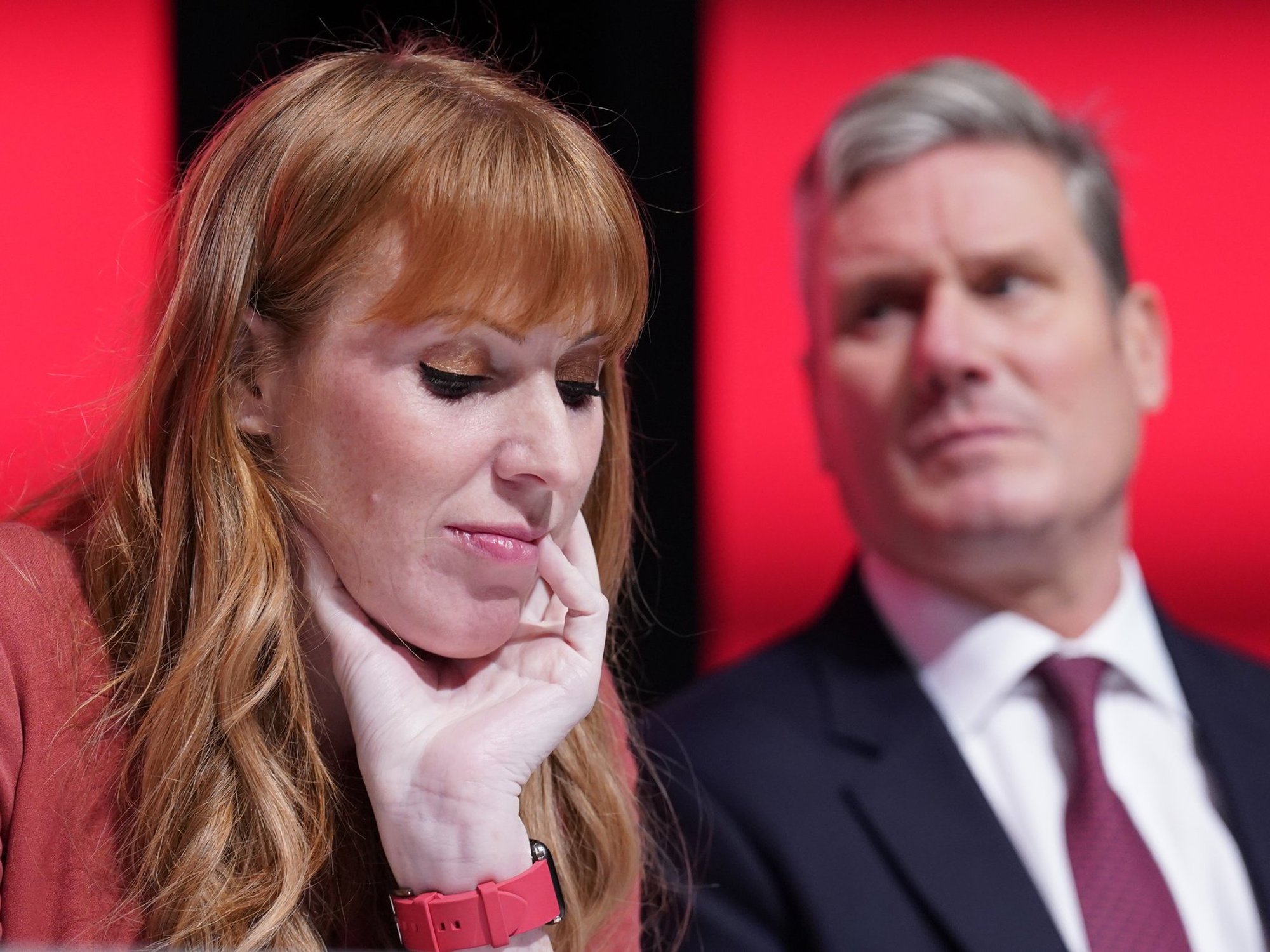Keir Starmer blasted by former MI6 chief for ‘beating around the bush’ as Iran continues strikes on Israel: ‘It’s ridiculous!’
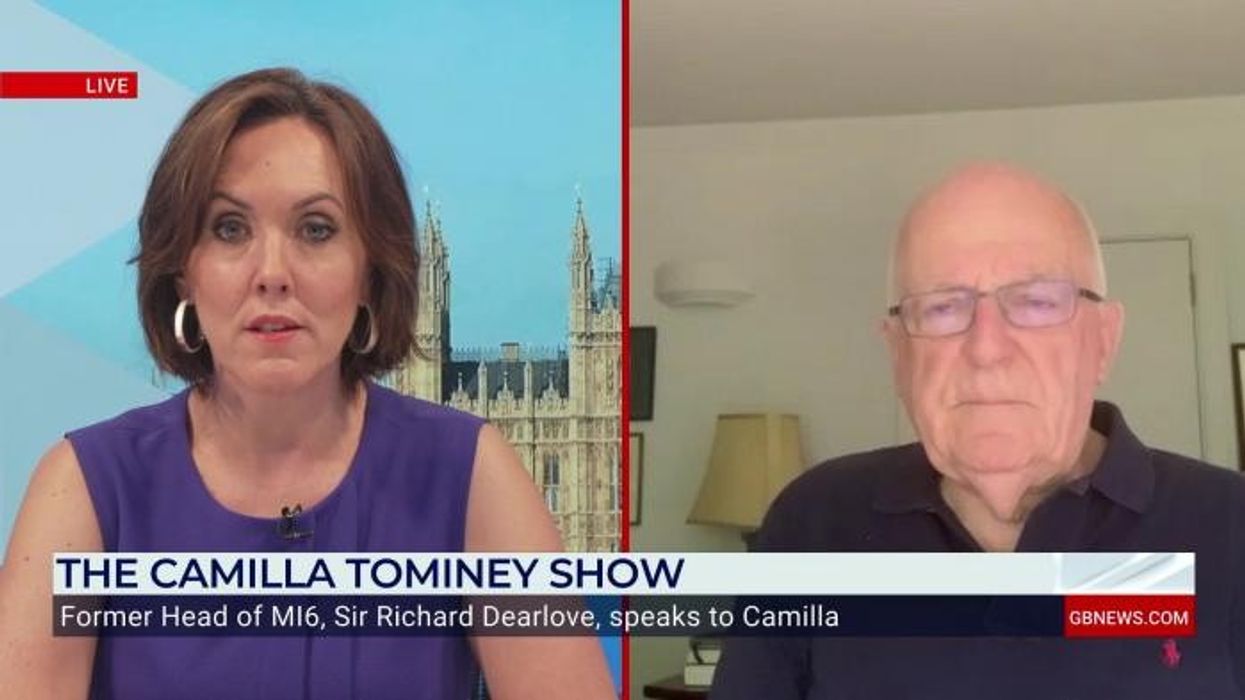
Sir Richard Dearlove discusses Iranian conflict |
GB NEWS

'We should be much more clear cut', Richard Dearlove said on GB News
Don't Miss
Most Read
Trending on GB News
Former MI6 chief Richard Dearlove has sharply criticised Prime Minister Keir Starmer for "beating around the bush" on Iran as the Middle Eastern nation continues its strikes on Israel. Speaking on GB News, Dearlove called the government's approach "ridiculous" amid the escalating conflict.
"We should be much more clear cut in where we stand. It's ridiculous to beat around the bush on this," Dearlove said on GB News.
The criticism comes as Iran and Israel exchange attacks, with Iranian state media warning the US, UK and France not to help Israel stop Tehran's strikes.
The conflict escalated after Israel launched strikes on Iranian nuclear facilities on Friday, prompting retaliatory missile and drone attacks from Iran that lit up the skies over Jerusalem and Tel Aviv.
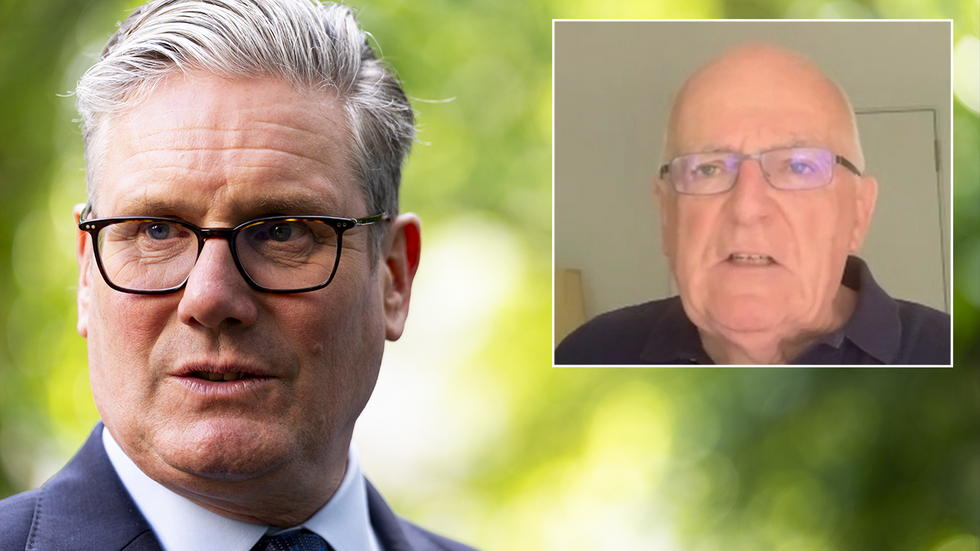
Dearlove criticised Starmer on GB News
|GB NEWS
Dearlove argued that the removal of the Iranian regime would serve Britain's national interests. "Let's be blunt, the disappearance of the Iranian regime would be strongly in our national interest," the former intelligence chief stated on GB News.
Whilst stopping short of advocating direct British involvement in Israeli attacks, Dearlove called for more concrete support for Israel's defensive capabilities. "I'm not saying we should directly contribute to the Israeli attack but we should be looking towards helping Israel's defence against ballistic missiles," he said.
LATEST DEVELOPMENTS
- Middle East descends into all-out war as IDF 'wipes out' fuel depots and Iranian missiles hit Israel
- Urgent travel warning issued for Britons amid war concerns - 'Do NOT travel'
- Caitlyn Jenner issues defiant statement while stranded in Israel during attacks: ‘We will prevail!’
His comments stand in stark contrast to the government's current approach, with the Prime Minister and Foreign Secretary David Lammy focusing on diplomatic efforts to de-escalate tensions through conversations with regional leaders including Iran, Jordan and Saudi Arabia.
The escalating conflict began with Israeli strikes on Iranian nuclear bases early Friday morning. Israel justified the attacks as necessary to prevent Iran from developing nuclear weapons, though experts and the US government have assessed that Tehran was not actively working on such a weapon.
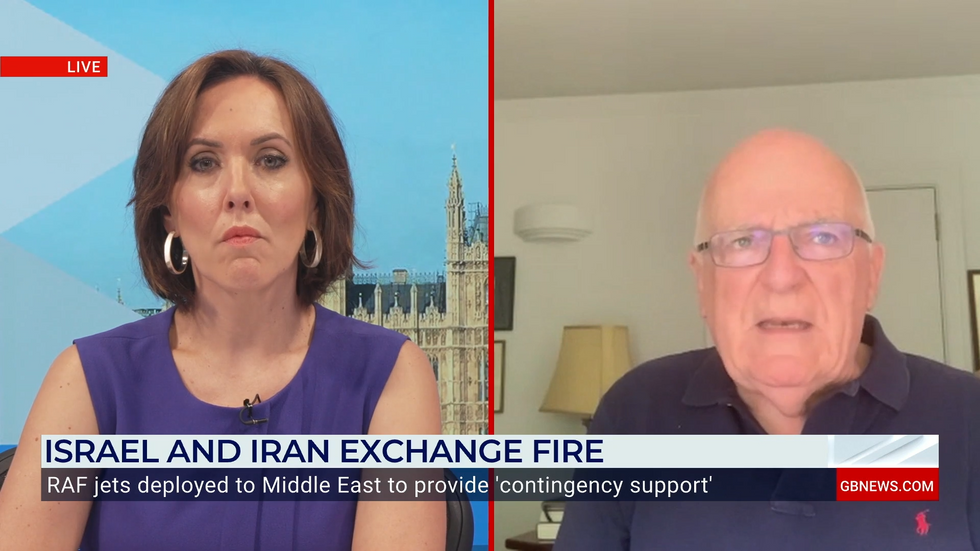
Richard Dearlove joined Camilla Tominey on GB News
|GB NEWS
Iran's UN ambassador reported that 78 people were killed and more than 320 wounded in Israel's attacks. Tehran responded with waves of drones and ballistic missiles, with explosions illuminating the skies over Jerusalem and Tel Aviv, reportedly killing at least three and wounding dozens.
The Indian Embassy in Tehran issued emergency contact numbers and advised Indian nationals to remain vigilant and avoid unnecessary movements. Fresh exchanges continued into Saturday, with Israeli forces detecting new rounds of missiles from Iran whilst launching additional strikes on Tehran.
Dearlove warned of heightened security risks in Britain as a result of the conflict. "There's an escalation inevitably of a terrorist threat," he told GB News, highlighting particular concerns about lone wolf attacks.
"You have the lone wolf attack, which is a problem very difficult to deal with because there's no conspiracy, organisation or opportunity to penetrate the coming incident," he explained. Whilst expressing confidence in Britain's ability to handle large-scale conspiratorial attacks, he acknowledged that radicalised individuals could pose significant dangers.
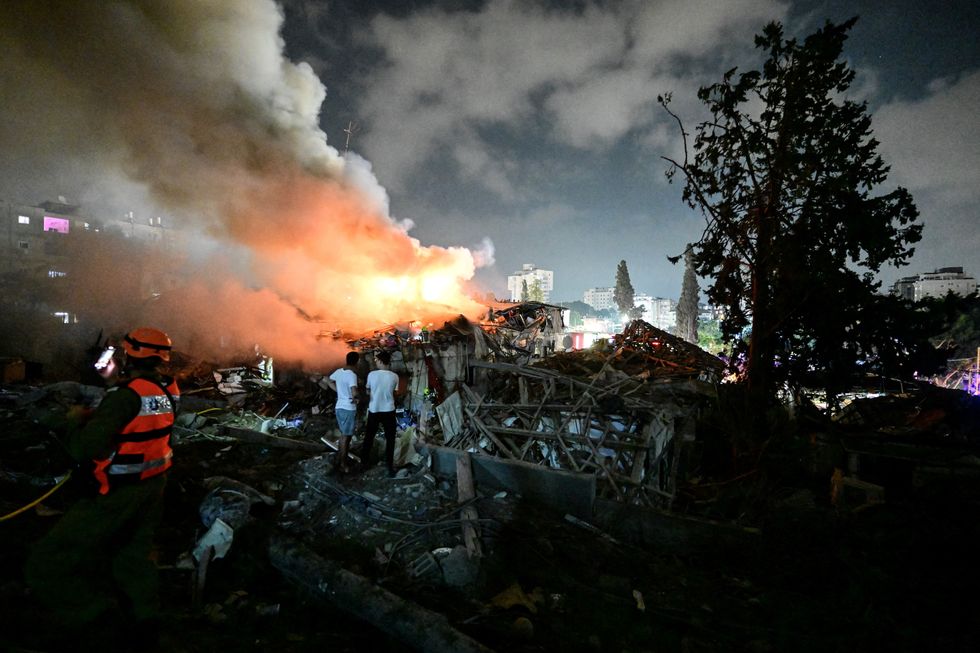 The aftermath of a missile attack in Israel | REUTERS
The aftermath of a missile attack in Israel | REUTERS"I think it's much more likely radicalised individuals might create some pretty dreadful problems but that's something we have to accept in this current climate. It's unfortunate, but that's the reality," Dearlove said.
Meanwhile, Starmer continues pursuing diplomatic solutions, speaking with Saudi Arabia's Crown Prince Mohammed bin Salman on Saturday afternoon about the need to de-escalate.
More From GB News







